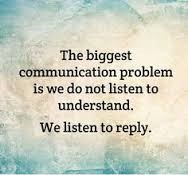 Life is a journey of exploration and discovery with plenty obstacles to overcome, living one’s full potential in life remains quite elusive. Yet, this is only the first step toward living an authentic life. Living an authentic life offers an opportunity to discover your goals and objectives. This often manifests by defining a path that is true to who you are and who you are about to become.
Life is a journey of exploration and discovery with plenty obstacles to overcome, living one’s full potential in life remains quite elusive. Yet, this is only the first step toward living an authentic life. Living an authentic life offers an opportunity to discover your goals and objectives. This often manifests by defining a path that is true to who you are and who you are about to become.
Many people who live an inauthentic life, live a life that is incompatible if not inconsistent with their values, abilities and desires. Because of this, they have strayed-off the path to discovering their true selves and real purpose in life. This is what it is like to live life inauthentic. It is a life simply hollow, incomplete and out-of-sync with oneself.
What does it mean to live an authentic life?
According to Brian Goldman, a renowned psychologist, authenticity is the unhindered operation of one’s true self in their daily enterprise. In his understanding, Goldman asserts that authenticity hold within it two very critical aspects:
- Self-knowledge
- Self-awareness
Essentially speaking, authentic people accept themselves for who they are. Like everyone else, such people have strengths and weaknesses. What makes them stand out is their ability to identify their strengths and at the same time seek to better their weaknesses. Being authentic is simply about connecting with one’s values, desires and abilities. Being authentic liberates one from the pressures of trying to be someone else; trying to be perfect.
Lame Deer is a Native American philosopher well-known for his work on human psychology. According to Deer, an authentic life is devoid of self-deprecation. He suggests that most people fall-short-of living authentically merely because they can’t stand their natural animal selves. Think of how people wear perfumes and deodorants to conceal their true smell. Or come to think of how people use cosmetic products and procedures to hide their true selves. Together with the various roles we undertake in the unending cycles of production and consumption as humans we remain detached from our true self and with nature itself. That is according to Lame Deer.
Authenticity in life is summarized by these two simple yet critical ingredients. In fact, self-knowledge and self-awareness defines who we are as humans. Understanding these two is just about all you need to live authentically.
Self-knowledge and self-awareness
At its very outset, authenticity begins when we commit our intentions to genuineness. A willingness to act genuine even when it feels most vulnerable. It comes with an ease of decision making in life; freedom to pick and choose on aspects that one relates very well with in as far as values and desires in life are concerned. This is in fact what it means to make unpopular decisions and choices in life. This is what it means to come to terms with some aspects that often people choose to hide away from, but which are integral parts of us. Self-knowledge and self-awareness are the building blocks of an authentic life. They make us live more honest if not engaged lives.

Definitive characteristics of authentic persons
Living an authentic life never comes easy. In fact, research surveys suggest that most humans across civilizations live inauthentic lives. Of course there are more than enough reasons for the same. That aside, the following are some aspects that may help you single out individuals who are actually living authentic:
- Resilience: living authentic life comes with an inherent ability to rise up to the challenge whenever one falls.
- Purposefulness: being authentic implies having an intended purpose in life. In other words having set objectives in life.
- Being goal-oriented: authentic people have some set goals to accomplish. They have targets in life and strive hard to realize them. In so doing, they remain steadfast and focused throughout their endeavors.
How to live authentic
Living authentic come with sacrifices as well as compromises. It calls for a complete overhaul of the past in favor of a fresh and new perspective to life. The following hints will get you started:
- Open mindedness
- Redefinition of values
- trust your intuition
Open mindedness
Being open minded is the cornerstone of authenticity. Be open to ideas and be sure to experience a whole new perspective of everything this life has to offer. Authenticity never flourishes in closed and rigid minds. In fact, it fades into insignificance. Such minds never hatch brilliant ideas and such people are fated to remain average for life. Well, this is less about an opinion than a fact of life.
Redefinition of values
This is about getting clear on what you dare to care about. Holding tight on the very values we grew up with is common place in most societies. Some of these values and traditions may clash with what we in fact stand for as values. This puts authenticity in jeopardy. In brief, it is impossible to live authentically if one knows not the very values that they stand for and uphold.
Trust your intuition
Whenever one acts inauthentic, intuitively they feel out-of-sync with who they actually are and what values they stand for. Intuition is about those hunches, physical sensations and even the impressions that come alongside the actions we undertake in life. Intuition instinctively shocks us back to our senses whenever we act contrary to what we stand for in life. Intuition guards us from straying far of the true path of authenticity.
Discovering who we actually are is but a continuous process. It is more like a journey than a destination, where we keep unfolding bits and pieces of ourselves as we move along. It is the beginning of being authentic and living authentic.








 Setting goals for your life is something that is so important. It can be very difficult to decide in which direction you want to take things, but it is very important that you set goals in order to achieve some sort of direction. Goals help keep your life structured and constantly moving forward. But how do you effectively set your goals?
Setting goals for your life is something that is so important. It can be very difficult to decide in which direction you want to take things, but it is very important that you set goals in order to achieve some sort of direction. Goals help keep your life structured and constantly moving forward. But how do you effectively set your goals?
 important thing is that overall you will be getting back as much as you put in, it may just be at a different time or in a different situation.
important thing is that overall you will be getting back as much as you put in, it may just be at a different time or in a different situation. Having a support system when you are in recovery from addiction is so important. With a support system you are much more likely to be successful in recovery, and work towards other goals that you have set for yourself. Your support network can be made up of professionals, family members, friends, as well as mentors from places like AA or NA. A good support person is so much more than just helping you maintain a positive attitude. Listed below are some of the other qualities that a good support person should have:
Having a support system when you are in recovery from addiction is so important. With a support system you are much more likely to be successful in recovery, and work towards other goals that you have set for yourself. Your support network can be made up of professionals, family members, friends, as well as mentors from places like AA or NA. A good support person is so much more than just helping you maintain a positive attitude. Listed below are some of the other qualities that a good support person should have:
 Positivity is something that does not always seem like a possibility in our day to day lives. However, positivity and an optimistic outlook can make a huge difference in how we carry ourselves and the directions that we choose to go in. Though at times it can be very difficult to maintain positivity, there are things that you can do to keep yourself upbeat and pushing forward.
Positivity is something that does not always seem like a possibility in our day to day lives. However, positivity and an optimistic outlook can make a huge difference in how we carry ourselves and the directions that we choose to go in. Though at times it can be very difficult to maintain positivity, there are things that you can do to keep yourself upbeat and pushing forward.
 Schizophrenia is a mental illness that is characterized by a loss of touch with reality, trouble maintaining daily schedules/motivation/personal hygiene, as well as trouble understanding information they are given to make decisions with. Schizophrenia is a very serious illness that is still not completely understood. We still aren’t 100% certain what causes it, whether it is a combination of genes and environment, or possibly just a chemical imbalance. What we do know for sure is just how devastating it can be when left untreated. Joblessness, homelessness, and even addiction are common among those who have untreated schizophrenia. It is so important that it is caught early and managed as it does not take very long for someone to lose control.
Schizophrenia is a mental illness that is characterized by a loss of touch with reality, trouble maintaining daily schedules/motivation/personal hygiene, as well as trouble understanding information they are given to make decisions with. Schizophrenia is a very serious illness that is still not completely understood. We still aren’t 100% certain what causes it, whether it is a combination of genes and environment, or possibly just a chemical imbalance. What we do know for sure is just how devastating it can be when left untreated. Joblessness, homelessness, and even addiction are common among those who have untreated schizophrenia. It is so important that it is caught early and managed as it does not take very long for someone to lose control. Someone with schizophrenia may also not move or respond to others around them (catatonic behaviour).
Someone with schizophrenia may also not move or respond to others around them (catatonic behaviour). Borderline Personality Disorder is a very serious mental illness that is characterized by a lack of stability in moods, behaviours, and relationships. The name of this disorder was given because it was thought to “border” many different types of mental illness, which has now been found to be quite inaccurate. Though each case is different, there are commonly occurring symptoms that are used to diagnose. (Please keep in mind that a trained professional should be making a diagnosis, as they are equipped to do so.) These symptoms include:
Borderline Personality Disorder is a very serious mental illness that is characterized by a lack of stability in moods, behaviours, and relationships. The name of this disorder was given because it was thought to “border” many different types of mental illness, which has now been found to be quite inaccurate. Though each case is different, there are commonly occurring symptoms that are used to diagnose. (Please keep in mind that a trained professional should be making a diagnosis, as they are equipped to do so.) These symptoms include: onships can go from being incredibly close and loving to incredibly distant and hateful in a very short amount of time. Romantic relationships can be especially so, and are often short lived as their partners have a hard time dealing with the mood swings and impulsive behaviours.
onships can go from being incredibly close and loving to incredibly distant and hateful in a very short amount of time. Romantic relationships can be especially so, and are often short lived as their partners have a hard time dealing with the mood swings and impulsive behaviours.